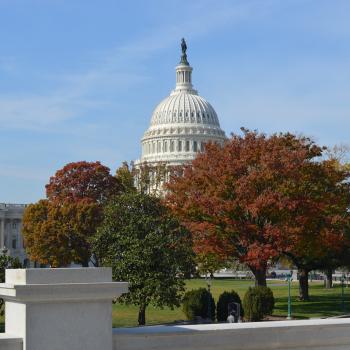If you’re still wondering if President Trump’s seemingly out-of-nowhere decision to withdraw from Syria, leaving our Kurdish allies to fight ISIS alone was just some random glitch, wonder no more.
Yes, those we’ve fought beside in Syria to contain this threat are facing certain destruction. They know it, and they are in a panic.
ISIS is not defeated, and they are thrilled to see the American forces leave.
They’re not the only ones.
Those powers who will now step in and control the region are pretty stoked, as well.
By “powers,” I’m talking Russia and Iran.
And you know, I don’t like to assume, but sometimes, you can just take the pieces as they’re given to you and the picture begins to form.
Take for instance the special forces base in Syria, at the border with Jordan, that Trump is emptying out, as we speak.
That particular base wasn’t so much there to simply hold off ISIS as it was to keep Iran at bay. The Russian government (read: Vladimir Putin) has been pretty annoyed with that one, and they’ve repeatedly complained about the U.S. presence there.
So is anyone truly shocked to see President Trump zero in on that base?
Gotta keep the boss happy.
Muhannad al-Talla, a rebel commander at al-Tanf, a US base near the Syrian border with Jordan, told BuzzFeed News that the base would see the withdrawal of the US troops who have trained and fought alongside rebels there, adding that he was helping to inventory and remove equipment. A US official confirmed that US troops will leave the base as part of President Trump’s decision to pull US forces from Syria.
The withdrawal at al-Tanf added to the concerns among US partner forces in Syria that they will be abandoned mid-fight — and it came as Secretary of Defense James Mattis issued a resignation letter stressing the need for the US to stand by its allies.
Here’s what I’m hearing: Secretary Mattis went to President Trump earlier in the day, Thursday, and attempted to reason with him.
Trump already had his marching orders. The walls have been closing in on him for the last couple of weeks, with Michael Cohen’s sentencing, the inauguration investigation, the Attorney General of New York taking away his family piggy bank (the Trump Foundation “charity”) – he has been in a panic.
He needed to change the narrative. He was facing pressure at home, and his back channel friends are calling in their markers.
Ok. Maybe Putin didn’t order this move.
Maybe.
In Secretary Mattis’ resignation letter, he stressed the importance of being the kind of partners that our allies can rely on, as well as recognizing that nations like Russia and China are not reliable agents for peace.
Trump does not care about maintaining the loyalties and alliances that have sustained us for all these many decades. He does not care that the new friends he’s making are not friends, at all.
Frankly, it is beyond alarming that so many are so invested in Trump the man, rather than the overall health of our nation, as well as our position on the world stage.
It is not Trump that will be our undoing. It is the cabal of the stupid that will sink us.
Meanwhile, Mattis saw that we have a president that listens to hostile foreign dictators above his own generals, so it was time to walk. “Livid” is the word I’m hearing used.
Russia has repeatedly objected to US presence at al-Tanf. A Russian official earlier this month expressed “growing concern” about the “illegal occupation of the 55-km zone around the base in al-Tanf,” calling it “the basic source of destabilisation in that part of Syria.”
Trump’s decision also came less than three months after national security adviser John Bolton announced that US troops would remain in Syria as long as Iran and its proxies did. Bolton reportedly lobbied Trump not to close al-Tanf, envisioning a role for it in the US strategy to check Iranian influence. Russia, which entered the civil war in 2015 to prop up Assad, meanwhile praised Trump for the planned withdrawal, with Russian President Vladimir Putin calling it the “correct” decision.
And did I mention that our allies no longer trust us?
“How can such a decision be issued by a superpower in this way?” asked Ahmed Khader Al-Mahaya, a media officer in al-Tanf. “ISIS has now turned into a new type of fighting, relying on sleeper cells and small groups that carry out surprise attacks. They have not been eliminated.”
In eastern Syria, ISIS is pushing back against a Kurdish-led coalition called the Syrian Democratic Forces (SDF). U.S. troops trained the SDF. Fighting side-by-side with them, they’ve not only held off ISIS, but hostile fighters from Turkey, Syria, Iran, and Russia.
Yeah. That Russia.
“I don’t see how they keep the focus on ISIS while faced with an existential threat from Turkey,” said a US military officer who has worked at senior levels of the anti-ISIS coalition, referring to Turkish threats to invade SDF territory. The SDF is dominated by Kurdish fighters linked to the PKK, which has been fighting a decades-long insurgency in Turkey, and Ankara has been upset about the partnership from the start. Trump’s decision to withdraw US troops followed the Turkish threats and a phone call with Turkey’s president.
“If I was [SDF leadership] and I saw that we’re leaving relatively quickly, and at a time when they’re fighting the most vicious, hardcore ISIS fighters, I would be thinking: Where’s my indirect fire coming from? Where’s my [air support]? Where’s my Medevac?” the US officer said. “I would really question how many more Kurdish lives I am going to waste on ISIS when the US is pulling out.”
They’re calling it “policy by tweeting.”
No, Trump did not consult with his generals or any of his advisers. He simply made the call to retreat in an early morning tweet.
A regional security official said Trump’s abandonment of the SDF would leave a “bitter aftertaste” with other US allies. “It also plays directly into Iran’s messaging: the US is not a reliable partner,” he said. “The US will now have to think long and hard next time it calls on local partners to bear the brunt of war.”
This sudden departure puts so many stabilization projects in peril, whether it’s the rebuilding of areas damaged in U.S. airstrikes, or it’s demining efforts.
“They just pull the plug with no warning, no plans — it’s crazy,” said Sasha Ghosh-Siminoff, executive director of People Demand Change, a nongovernmental organization that carries out US-funded development work in northeastern Syria. “What the hell happens to all that money and all the plans? You have hundreds of millions and maybe even over a billion in U.S. aid and development contracts that will be left in limbo.”
Ghosh-Siminoff noted that Saudi Arabia and the UAE, at US urging, had recently pledged $250 million in stabilization aid, and that the work of other countries and organizations in SDF territory requires a guarantee of security. “All that money is tied to US government presence and force protection. The French, Canadians, and other countries who were ramping up and preparing to help with stabilization will not show up with that if there is no force protection from the US government.”
I promise you, Trump did not think that far ahead, nor would he care. After a call from Turkey’s Erdogan, and a little Russian “persuasion,” he’s ready to dropkick our nation’s credibility and influence in the region.










